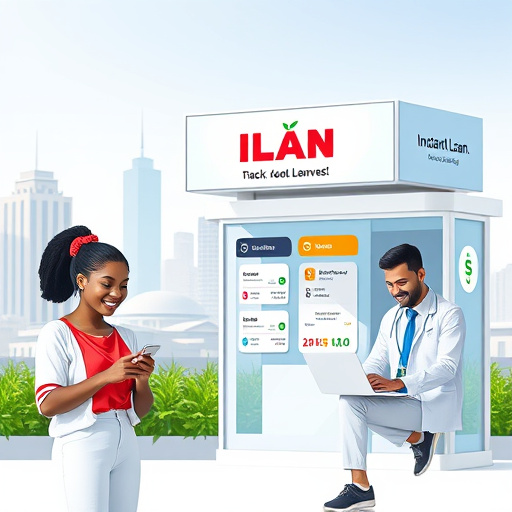Not too long ago, if you needed a loan in Nigeria, you had to brave long queues at a bank, shuffle through piles of paperwork, and pray your request didn’t get declined for not having “enough collateral.” But those days are fading fast. Welcome to the digital lending revolution—where access to credit is just a few taps away.
But now things have changed, thanks to the revolution in fintech and technology in Nigeria.
Digital lending platforms are changing the game.
They’re not just modernizing how loans are disbursed—they’re democratizing it. For the first time, millions of Nigerians who were invisible to the traditional banking system are becoming financially visible.
Platforms like Carbon, FairMoney, Renmoney, Crendly, and Trade Lenda are using data and technology to give people and businesses a chance—without asking for land documents or a long banking history.
A smartphone and mobile data are now enough to access quick loans.
Let’s break it down…
The Everyday Nigerian Finally Has a Chance
Think about Chinwe, a hairdresser in Lagos who never thought she could get a loan.
No payslip, no fixed address, no guarantor.
But thanks to a mobile lending app, she accessed ₦50,000 to buy more hair products for the festive rush.
She repaid on time and got access to a bigger loan next time.
She’s not alone.
A 2024 case study by SympliFi revealed that 91% of users had no access to credit before using the platform.
Digital lenders are assessing creditworthiness not by your salary or who you know—but by analyzing your phone usage, transaction patterns, and repayment behavior.
But now, digital lenders are empowering Nigeria’s hustling SMEs like never before.
It’s not just individuals who are benefitting.
Nigeria has over 40 million micro, small, and medium enterprises (MSMEs).
They form the backbone of our economy but are starved of funding. Banks consider them risky.
The process is slow. But digital lenders see them differently.
Platforms like Trade Lenda and Crendly provide loans in 24–48 hours without asking for heavy collateral.
These loans help SMEs stock up, scale up, and stay alive.
And guess what?
Some platforms reported a 100% increase in demand within months—proof that small business owners are turning to digital loans to survive Nigeria’s harsh economic climate.
But you need to note that not all that glow glitters…
Because, you need to note that their are real concerns about
-
High-interest rates—some platforms charge annualized rates of up to 200%!
-
Harassment—Some lenders have shamed defaulters by calling their friends and family.
-
Data privacy—Users don’t always know what they’re agreeing to when they click “Accept Terms.”
In fact, investigations revealed that several foreign-backed loan apps were engaging in illegal debt collection tactics, prompting regulatory crackdowns.
And this is why you must be aware of government & regulation
The Nigerian government has noticed. Initiatives like the National Credit Guarantee Company (NCGC) are being introduced to share risk with lenders and expand access.
There’s also a push to integrate digital lenders into national credit bureaus so we can have a more transparent and ethical credit ecosystem.
And this fill the gap in the society for our women and wins for women
Let’s not forget the women.
Access to credit has historically been even harder for women in business.
But digital lending is slowly leveling the field.
Through programs like We-Fi (Women Entrepreneurs Finance Initiative), many women-led SMEs are now getting loans based on their cash flow—not their husbands’ approval or their ability to provide collateral.
CONCLUSION
The impact of digital lending platforms in Nigeria is loud and clear: more people are accessing credit, more businesses are growing, and the system is becoming more inclusive.
But like all revolutions, it must be managed well.
Without proper regulation, ethics, and transparency, this promising system could hurt the very people it seeks to help.
Still, if done right?
Digital lending could be one of the greatest financial equalizers in Nigeria’s history.
Your future loan may not come from a bank but from your smartphone.


